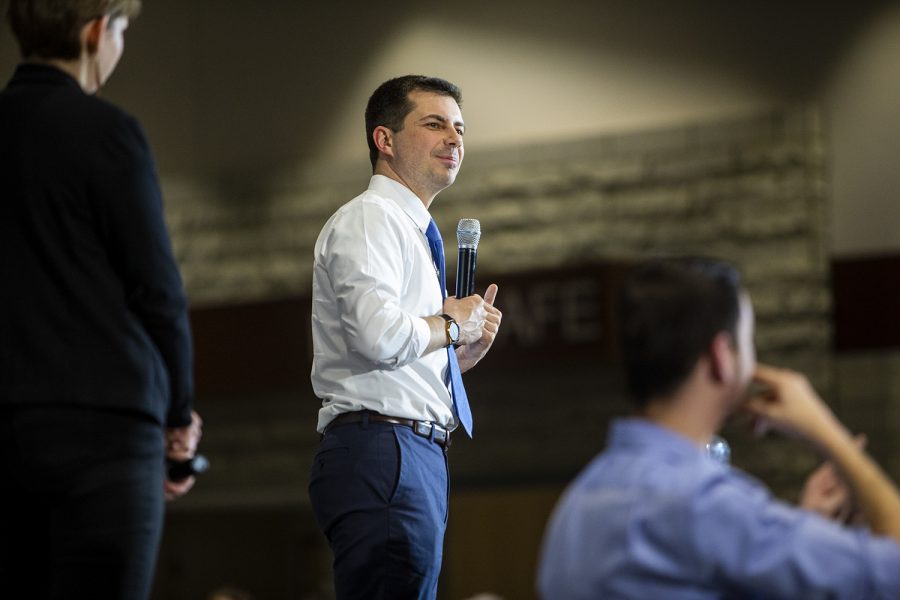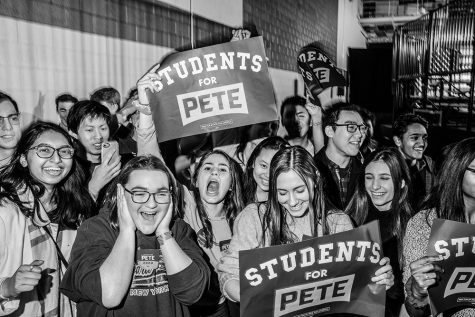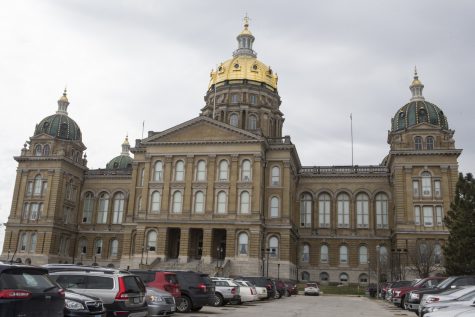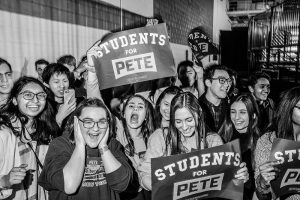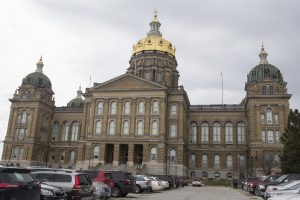Opinion: Buttigieg campaign missed opportunity to galvanize young voters
The 38-year-old could have been the champion of the future, and opted instead to be a milquetoast middle ground.
Former South Bend, Indiana mayor and Democratic presidential-nomination hopeful Pete Buttigieg speaks at his rally at North Liberty High School in North Liberty, Iowa on Monday, January 27, 2020.
March 2, 2020
Pete Buttigieg was, in a word, disappointing. His sky-high rise in the Democratic Party led him to winning the most delegates in the Iowa caucuses, but ultimately failed to go much of anywhere. Lots of reasons can explain his failure to unite the party, but his most glaring problem was his inability to represent his natural constituency: young people. Let’s look at where he went wrong.
The best-laid plans…
I first heard about Buttigieg in January 2017, when he announced his campaign for Democratic National Committee chair.
The Trump Era was just getting underway and the party was trudging through all kinds of post-election soul searching. #BernieWouldHaveWon — claiming the independent Vermont senator should be the leading voice in the party — was popular among pundits. Another part of the conventional wisdom was the idea that President Trump would have a hard time unifying Republicans.
Both of those talking-head hypotheses turned out to be less than accurate. The president has been able to consolidate nearly unanimous support in his party, and the Democrats are as divided as ever in their efforts to block a Sanders nomination a second time.
And then there was Buttigieg. He had another idea. As a 36-year-old gay veteran from Indiana, Buttigieg sought to reshape the Democratic Party for the future.
He borrowed the best parts of Sanders’ vision and fused it with a pragmatic approach to national politics. His DNC chair run even got the backing of another Vermonter, Howard Dean, who previously served as chair and was the progressive candidate in the 2004 presidential-nomination race.
He really seemed like he could represent the next generations of leaders… But it didn’t last.
“I am urging to do the things that must be done to be open to change, to look beyond Washington, to not treat the presidency like it’s the only office that matters,” Buttigieg said in his speech at the end of the campaign.
He looked like a younger surrogate for the progressive progress our country has lacked. So, when he announced his campaign for the Democratic presidential nomination, there was plenty of reason to be excited.
… often go awry
Things started off well enough.
Buttigieg came out swinging on big policy ideas. He called for abolishing the Electoral College and the senatorial filibuster. He wanted to raise the minimum wage to $15 an hour “or more.” He even floated the ideas of adding justices to the Supreme Court and granting statehood to Puerto Rico and the District of Columbia.
He really seemed like he could represent the next generations of leaders. He had an exciting platform aimed at reworking the American political system in favor of progress. But it didn’t last.
After the Buttigieg bump launched him into the national conversation, he started to ease off his change-oriented message.
His approach to the climate crisis is a good example. As someone who would be the youngest president in American history, one would hope that the existential issue would be a large pillar — perhaps even the base — of his policy agenda. However, his proposals were so paltry that in January, the group Greenpeace rated him as essentially tied with former Vice President Joe Biden.
Another issue Buttigieg had a chance to champion is education. He actually brought up the issue quite a bit — to show why his college-tuition plan was more restrained than Sanders’.
When taken together, Buttigieg didn’t really seem to be “open to change.” While his policies would be the most progressive of any presidential nominee, he failed to truly seize the historic opportunity to lead the U.S. into a new generation. That’s why, instead of the millennial candidate, young people primarily rallied behind the 78-year-old Sanders.
Maybe Buttigieg has another presidential bid in his future, but his chance to be a young revolutionary will forever be a disappointing waste.
Columns reflect the opinions of the authors and are not necessarily those of the Editorial Board, The Daily Iowan, or other organizations in which the author may be involved.



